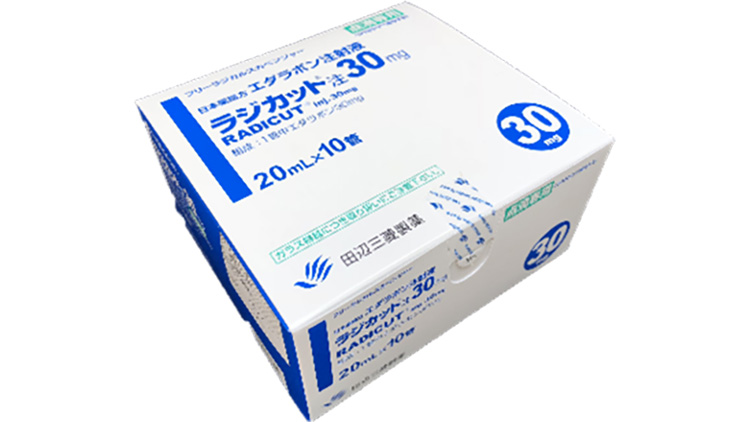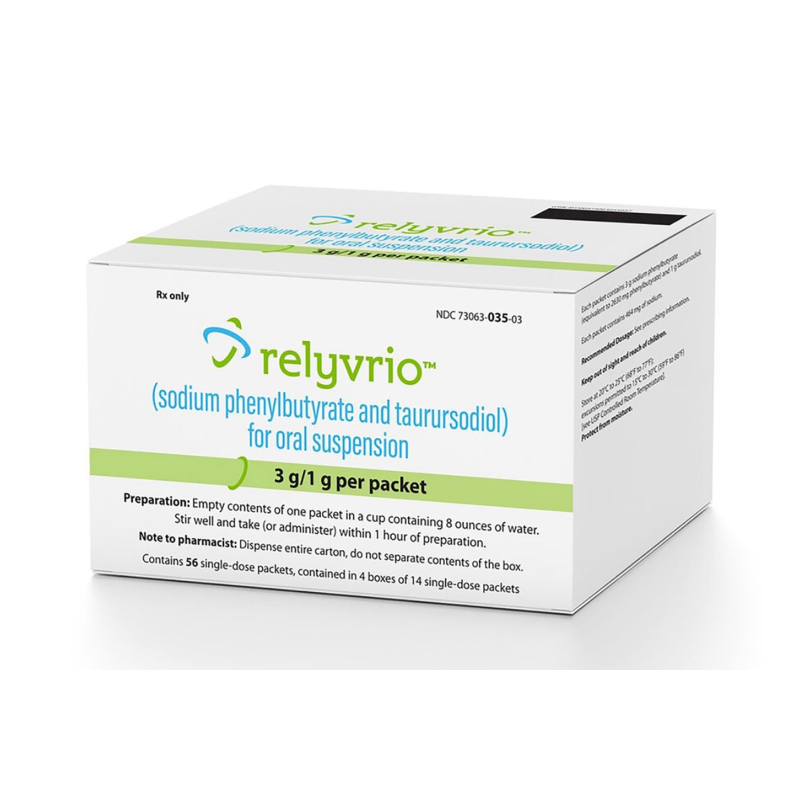Radicut (edaravone) vs Relyvrio (sodium phenylbutyrate and taurursodiol)
Radicut (edaravone) vs Relyvrio (sodium phenylbutyrate and taurursodiol)
Radicut (edaravone) is an intravenous medication approved for the treatment of amyotrophic lateral sclerosis (ALS), which works by reducing oxidative stress in the body, potentially slowing the decline in physical function associated with this condition. Relyvrio (sodium phenylbutyrate and taurursodiol), on the other hand, is an oral medication also approved for ALS, and it is believed to reduce neuronal cell death through multiple pathways, including mitochondrial stabilization and reduction of toxic protein aggregates. When deciding between the two, a patient should consider factors such as the route of administration, the specific mechanism of action, potential side effects, and any personal or clinical factors that may make one treatment more appropriate than the other, in consultation with their healthcare provider.
Difference between Radicut and Relyvrio
| Metric | Radicut (edaravone) | Relyvrio (sodium phenylbutyrate and taurursodiol) |
|---|---|---|
| Generic name | Edaravone | Sodium phenylbutyrate and taurursodiol |
| Indications | Amyotrophic lateral sclerosis (ALS) | Amyotrophic lateral sclerosis (ALS) |
| Mechanism of action | Free radical scavenger | Neuroprotective; reduces neuronal cell death |
| Brand names | Radicut, Radicava | Relyvrio |
| Administrative route | Intravenous | Oral |
| Side effects | Headache, gait disturbance, bruising | Diarrhea, abdominal pain, nausea |
| Contraindications | Hypersensitivity to edaravone or excipients | Hypersensitivity to active ingredients or excipients |
| Drug class | Free radical scavenging agent | Combination drug: amino acid, bile acid |
| Manufacturer | Mitsubishi Tanabe Pharma | Amylyx Pharmaceuticals |
Efficacy
Efficacy of Radicut (Edaravone) for ALS
Radicut, known generically as edaravone, is a medication that has been found to be effective in the treatment of Amyotrophic Lateral Sclerosis (ALS), a progressive neurodegenerative disease. The efficacy of edaravone in slowing the decline of physical function in ALS patients was demonstrated in a pivotal clinical trial that led to its approval by regulatory agencies. In this trial, patients treated with edaravone showed a significantly smaller decline in the ALS Functional Rating Scale-Revised (ALSFRS-R) score compared to those receiving a placebo. This scale measures the ability of patients to perform daily activities, and a smaller decline in the score indicates a slower progression of the disease.
However, it is important to note that the benefits of edaravone may not be universal for all ALS patients. The clinical trials primarily included individuals who were within two years of symptom onset, had relatively preserved lung function, and met specific criteria on the ALSFRS-R at the start of the study. Therefore, the efficacy of edaravone might be more pronounced in early-stage ALS patients who meet these criteria.
Efficacy of Relyvrio (Sodium Phenylbutyrate and Taurursodiol) for ALS
Relyvrio, a combination of sodium phenylbutyrate and taurursodiol, is another medication approved for the treatment of ALS. The efficacy of Relyvrio was evaluated in a randomized, double-blind, placebo-controlled trial. In this study, patients receiving Relyvrio experienced a slower rate of decline in the ALSFRS-R score compared to those on placebo. This indicated a deceleration in disease progression, suggesting that Relyvrio may have a positive impact on preserving motor function in ALS patients over time.
Additionally, the study found that patients treated with Relyvrio had a longer median survival time compared to those on placebo, which suggests a potential survival benefit. It is worth mentioning that the combination of sodium phenylbutyrate and taurursodiol is thought to exert its effects by reducing neuronal cell death through multiple pathways, including the mitigation of oxidative stress and improvement of mitochondrial function. While these findings are promising, further research is necessary to fully understand the long-term benefits and potential variability in response among different ALS patient populations.
Regulatory Agency Approvals
Radicut
-
Food and Drug Administration (FDA), USA

-
Health Canada

-
Pharmaceuticals and Medical Devices Agency (PMDA), Japan

Relyvrio
-
Food and Drug Administration (FDA), USA

Access Radicut or Relyvrio today
If Radicut or Relyvrio are not approved or available in your country (e.g. due to supply issues), you can access them via Everyone.org.
How it works

Make an enquiry
Choose the medicine you want to buy, answer a couple of questions, and upload your prescription to speed things up. We’ll get back to you within 24 hours.


Make an enquiry
Choose the medicine you want to buy, answer a couple of questions, and upload your prescription to speed things up. We’ll get back to you within 24 hours.


Breeze through the paperwork
We'll guide you through the required documents for importing unapproved medicine, ensuring you have all the necessary information.


Get a personalized quote
We’ll prepare a quote for you, including medicine costs and any shipping, administrative, or import fees that may apply.


Receive your medicine
Accept the quote and we’ll handle the rest - sourcing and safely delivering your medicine.

Some text on this page has been automatically generated. Speak to your physician before you start a new treatment or medication.
Let's talk
If you have any questions, call us or send us a message through WhatsApp or email:
Contact us




